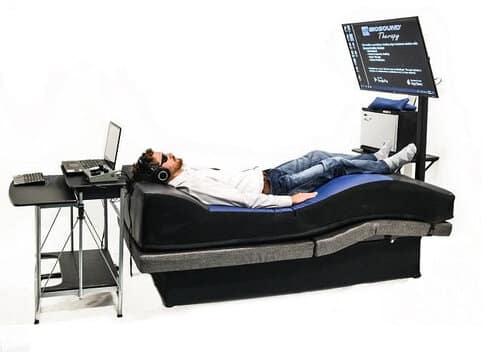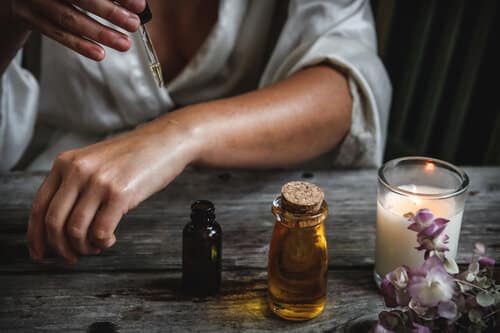Request a Callback
"*" indicates required fields
DMT
In today’s world, substance abuse and mental health issues have reached epidemic proportions, causing immeasurable suffering for individuals and their families. While traditional treatments have proven effective for many, there remains a need for innovative solutions that can revolutionize the way we approach these complex problems. Enter DMT, or dimethyltryptamine, a naturally occurring psychedelic compound found in various plants and animals.
DMT has long been shrouded in mystery and stigma, associated with psychedelic experiences and spiritual rituals. However, recent scientific research and anecdotal evidence suggest that DMT has the potential to be a game-changer in the field of substance abuse and mental health treatment.
What Is DMT?
DMT, also referred to as N, N-Dimethyltryptamine, is a substance that appears in the form of a white powder. Although the likelihood of developing physical dependence on DMT is relatively low compared to other drugs, it is important to note that psychological addiction can still manifest and necessitate professional intervention at a drug rehabilitation center.
Despite having fewer side effects compared to other psychedelics, it still presents a range of potentially severe adverse effects, such as:
- Agitation
- Chest pain or tightness
- Diarrhea
- Dilated pupils
- Dizziness
- Increased heart rate
- Increased blood pressure
- Nausea
- Rapid rhythmic movements of the eye
- Vomiting
The History And Origins Of DMT
DMT has a rich history and has been used for centuries in various cultural and spiritual practices. It is found in plants such as ayahuasca, a brew used by indigenous communities in the Amazon for healing and spiritual purposes.
The use of DMT has been documented in shamanic rituals, where it is believed to facilitate communication with higher powers and provide insights into the nature of existence.


How DMT Works In The Brain And Its Effects
To understand the potential therapeutic effects of DMT, it is essential to explore how it works in the brain. DMT is a powerful psychedelic compound that acts on serotonin receptors in the brain, specifically the 5-HT2A receptors. This interaction leads to altered states of consciousness, including intense visual and auditory hallucinations.
DMT’s effects on substance abuse and mental health disorders are thought to be multifaceted. One of the key mechanisms is its ability to induce profound mystical experiences. These experiences often involve a sense of interconnectedness, unity, and transcendence, which can lead to enhanced self-awareness, personal insight, and emotional healing.
DMT Withdrawal Symptoms
- DMT does not lead to physical addiction, so there are no withdrawal symptoms when its use is discontinued. However, there may be persistent psychotic symptoms that continue long after the last dose has been taken.
- One concerning effect is Hallucinogen Persisting Perception Disorder (HPDD), which is a chronic condition where individuals continue to experience the drug’s impact days, weeks, or even years after their last use.
- While a “bad trip” typically lasts only an hour, the lingering effects can endure for a much longer period. It is possible to remain in a state of extreme fear for days following the experience.
- If you are experiencing these symptoms, it is possible for a clinician to misdiagnose them as a mental health disorder, as they can resemble schizophrenia. This is why it is crucial to be honest and open during conversations with medical professionals.
Potential Risks And Side Effects Of Using DMT
Like any medical intervention, DMT treatment carries potential risks and side effects. It is essential to understand and mitigate these risks to ensure the safety and well-being of patients. Common side effects of DMT include increased heart rate, elevated blood pressure, and anxiety. However, serious adverse effects are rare when administered under controlled conditions by trained professionals.


DMT Rehab Options
The key to finding the right drug rehabilitation process lies in tailoring it to meet the individual’s specific needs. For individuals struggling with a severe addiction, residential treatment, also known as Inpatient Rehab, can be highly effective.
- This type of treatment involves living at a facility where round-the-clock care is provided. Long-term residential treatment, lasting 6 to 12 months, or short-term residential treatment, lasting 3 to 6 weeks, can be chosen based on the severity of the addiction.
- By removing oneself from the distractions of everyday life, patients can fully concentrate on their recovery journey. Moreover, being surrounded by a supportive community of staff and fellow patients ensures accountability and encouragement.
- On the other hand, for those with a milder addiction or who have already completed inpatient rehab, an outpatient treatment program may be more suitable. These programs allow individuals to receive treatment during the day and return home at night.
The schedule and intensity of the program can be adjusted to cater to the specific needs of the patient. By offering flexibility and support, outpatient treatment programs can be a valuable step towards lasting recovery.
Integrating DMT Into Existing Treatment Programs And Therapies
- Integrating DMT into existing treatment programs and therapies requires careful consideration and collaboration among healthcare professionals, researchers, and policymakers.
- DMT-assisted therapy can be integrated into a comprehensive treatment plan that includes psychotherapy, counseling, and other evidence-based interventions.
- This integration can provide a holistic approach to addressing substance abuse and mental health disorders.


Future Prospects For DMT As A Revolutionary Treatment Option
DMT holds tremendous promise as a revolutionary treatment option for substance abuse and mental health disorders. While more research is needed to fully understand its mechanisms and optimize its therapeutic potential, the preliminary findings are encouraging. With the growing interest and support from mental health professionals and researchers, we are on the brink of a breakthrough in addressing these complex challenges.
As we move forward, it is crucial to approach the use of DMT with caution, ensuring that it is used responsibly, under controlled conditions, and in conjunction with evidence-based treatments. By unlocking the potential of DMT, we can offer hope and healing to individuals and families affected by substance abuse and mental health disorders.
We believe in Holistic Therapies.

Biosound Therapy
Biosound Therapy is the integration of Biofeedback, Therapeutic Music, sound healing massage, and guided imagery. The guided imagery selections on the Biofeedback Bed are designed to address the guilt, fear, shame and trauma associated as underlying issues for most dealing with addiction. These moving meditations begin with a journey to a completely relaxed state of mind. Then, utilizing a unique echo effect, powerful and positive affirmations are delivered. This combination helps the client overcome those deep rooted, negative patterns of thought and behavior.
- Relieves pain & stress
- Assists with Detoxification Treatment
- Lowers cravings, impulse behavior and racing thoughts
- Lowers anxiety & depression

Equine Psychotherapy
Equine-Assisted Therapy is used to treat patients challenged with everything from drug and alcohol abuse dependency and post-traumatic stress syndrome. The therapy takes advantage of the mental and physical exercise that working with a horse can provide. Equine therapy:
- Helps clients learn to identify and cope with feelings
- Promotes Effective Communication Skills
- Helps Addicts Better Manage Behavior
- Teaches How to Set Boundaries
- Restores Self-Esteem and Self-Worth
*This is an optional, additional therapeutic therapy available after clinical treatment hours.

Massage Therapy
Clients at Relevance receive weekly massage therapy from our Licensed Therapists. Some additional benefits include:
- Release of ‘feel-good’ hormones. According to the American Massage Therapy Association (AMTA), massage helps to increase serotonin and dopamine (feel-good hormones) and decrease cortisol which is related to stress.
- Reduce agitation and anxiety and ease sleep problems.
- Provides a natural, alternative method of healing, free of drugs.
- Helps with the removal of metabolic waste. Therapeutic massage triggers or stimulates the body’s parasympathetic nervous system. This in turn can increase circulation and promote the effectiveness of the lymph system. The lymph system helps to alleviate pain symptoms and is responsible for removing the body’s metabolic waste build-up.
- Provides the client with a connection to their body, and improves or increases body awareness.
Get the Help You Need, Now.
Start your journey to substance abuse recovery with us in New Jersey today.





